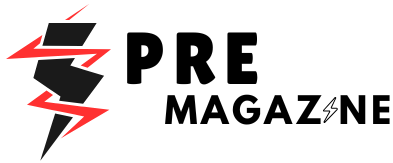In the U.S., healthcare can be incredibly expensive if you’re uninsured. A single emergency room visit or surgery can cost thousands of dollars. That’s why private health insurance is not just an option—it’s essential for financial security and access to quality care.
In this guide, we’ll break down what private health insurance is, what it covers, who needs it, top companies in 2025, and how to choose the right plan for you and your family.
🔍 What is Private Health Insurance?
Private health insurance is a type of health coverage offered by non-government entities, such as private insurance companies. It can be purchased by individuals, families, or provided through an employer.
Private insurance plans are different from government-sponsored programs like Medicare, Medicaid, or VA Health Care.
✅ Key Benefits of Private Health Insurance
- Wider Network Access: Use of more hospitals and doctors nationwide.
- Faster Appointments & Better Care: Less waiting, more provider choices.
- Custom Coverage Options: Maternity, dental, vision, mental health, etc.
- Tax Benefits (for some plans): Especially if you’re self-employed.
- Coverage Flexibility: Choose plans based on your health needs and budget.
🏥 What Does Private Health Insurance Cover?
Coverage can vary depending on the plan, but most include:
- Doctor visits (Primary and Specialists)
- Emergency care
- Hospitalization
- Prescription drugs
- Maternity and newborn care
- Preventive services (like screenings, immunizations)
- Mental health services
- Rehabilitation and therapy
🔹 Many plans also offer telehealth, chronic disease management, and wellness rewards in 2025.
🏆 Top Private Health Insurance Providers in the USA (2025)
| Insurance Company | Plan Types Offered | Best For |
|---|---|---|
| Blue Cross Blue Shield | PPO, HMO, EPO | Nationwide access |
| UnitedHealthcare | Employer & Individual plans | Telehealth & wellness programs |
| Aetna (CVS Health) | Individual, Family, Employer | Affordable & pharmacy integration |
| Cigna | PPO, HMO, International Coverage | Global travelers, digital tools |
| Kaiser Permanente | HMO | Preventive care & managed networks |
| Oscar Health | Tech-driven plans, PPO, EPO | App-based care, young adults |
💡 Types of Private Health Insurance Plans
- HMO (Health Maintenance Organization): Requires referrals, low cost, limited network.
- PPO (Preferred Provider Organization): Higher cost, flexible provider access.
- EPO (Exclusive Provider Organization): No referrals needed, but no out-of-network coverage.
- HDHP (High-Deductible Health Plan): Lower premiums, used with HSAs.
🤔 How to Choose the Best Private Health Insurance Plan in 2025
- Evaluate Your Health Needs: Do you need frequent care, prescriptions, or family coverage?
- Check Provider Network: Are your preferred doctors/hospitals in-network?
- Compare Monthly Premiums vs. Out-of-Pocket Costs: Balance premium, deductible, and co-pays.
- Consider Your Location: Some plans like Kaiser are region-specific.
- Use Healthcare.gov or State Exchanges: If you’re buying independently.
📊 Average Cost of Private Health Insurance (USA – 2025 Estimates)
| Coverage Type | Monthly Premium (Individual) | Monthly Premium (Family) |
|---|---|---|
| Employer-Sponsored | $125–$250 (after employer contribution) | $500–$1,000 |
| Marketplace Plans | $300–$700 | $1,000–$1,800 |
💡 You may qualify for subsidies under the ACA (Affordable Care Act) based on your income.
💬 FAQs – Private Health Insurance in the U.S.
Q1: Is private health insurance mandatory in the USA?
A: No, but not having it can lead to high out-of-pocket costs in emergencies.
Q2: Can I get private insurance without a job?
A: Yes, you can buy individual plans through the ACA marketplace or directly from insurers.
Q3: Is dental and vision included in private health insurance?
A: Usually not. These are optional add-ons or separate plans.
Q4: Can I switch plans mid-year?
A: Only during Open Enrollment (Nov–Jan) or if you have a Qualifying Life Event (like job loss, marriage).
📝 Conclusion: Should You Get Private Health Insurance in the U.S. in 2025?
Absolutely. With healthcare costs skyrocketing, having private health insurance ensures you get access to top-quality care without draining your savings. Whether you’re self-employed, between jobs, or want better coverage than what your employer offers, there are plenty of flexible, affordable options available in 2025.
Take your time, compare providers, and find a plan that fits your health needs and budget.
📌 Bonus Tip:
Use tools like Healthcare.gov, Policygenius, or eHealth Insurance to compare private health plans quickly.


